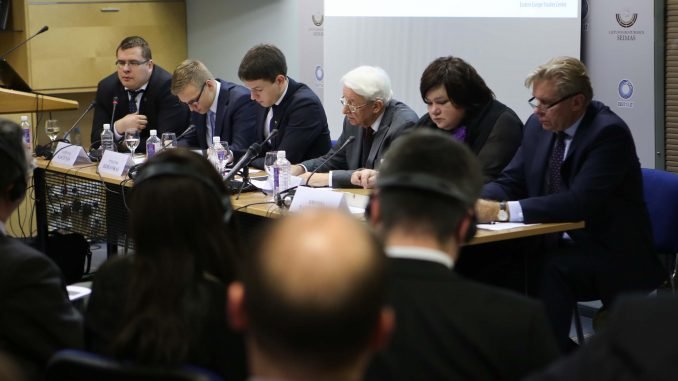
During the presentation, which was attended by a host of diplomats, politicians, journalists and experts, authors of the study, Dr. Laurynas Kasčiūnas, Linas Kojala and Vytautas Keršanskas, discussed their findings. They emphasized that Eastern Partnership, which was launched in 2009, must react to recent developments in security environment. Events in Ukraine have shown that current tools, such as the spread of European regulations and norms via Association and DCFTA agreements, are not sufficient. Because of growing pressure from Russia, it becomes increasingly difficult for EaP countries to implement necessary reforms.
Therefore, authors outlined three possible scenarios for EaP. The first scenario confirms EaP region as Russia’s zone of influence; hence, in order to seek stability, the EU could retreat and reduce its ambitions in the region considerably. The second scenario is dubbed “muddling through”; under this scenario, the EU could continue to seek implementation of Association Agreements, but no new incentives for reform in EaP countries or tools to enhance cooperation would be on the table, therefore de facto confirming Russia’s veto power in the process. The third scenario confirms the improbability of membership perspective for EaP countries, but offers “perspective of membership perspective” as a way forward; this concept is based on a “roadmap” for differentiated reform process in each of the EaP countries. If reforms are successfully implemented and evaluated, EaP countries would be given a membership perspective.
Furthermore, authors recommend speeding up the process of ratification of Association Agreements in EU countries (only seven EU countries have ratified agreements to this date) and sharing good practices of reform, as a host of current EU members in Central and Eastern Europe, went through similar changes over a decade ago.

Be the first to comment